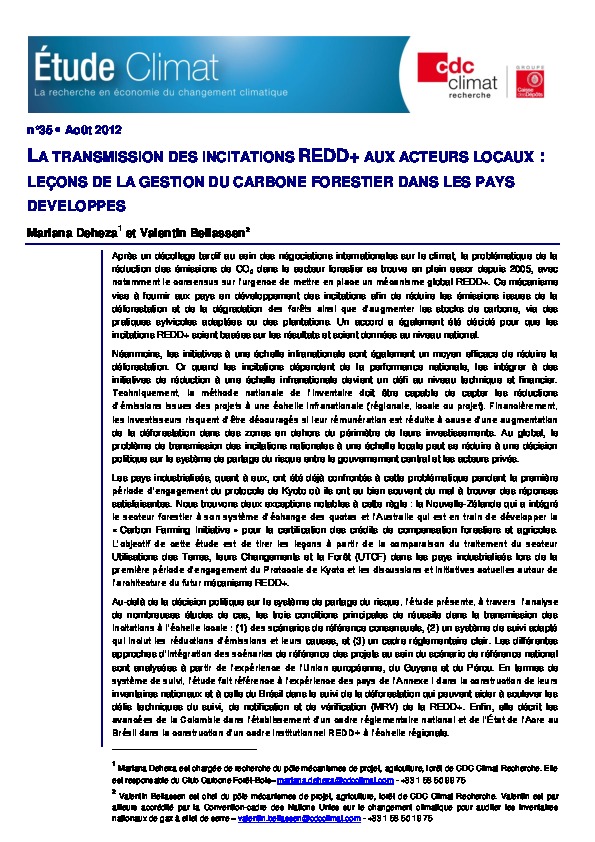Delivering REDD+ incentives to local stakeholders: lessons from forest carbon
By Mariana DEHEZA et Valentin BELLASSEN
Reducing CO2 emissions from forests was slow to get off the ground as a subject of international climate negotiations, but it has picked up considerable momentum since 2005. In particular, agreement has been reached on the urgence to set up a global REDD+ mechanism. The mechanism aims to provide developing countries with incentives to reduce emissions from deforestation and forest degradation and to increase forest carbon stocks through appropriate forestry practices or through planting. Agreement has also been reached that REDD+ incentives should be result-based and ultimately awarded at the national level.
Nevertheless, local initiatives are a useful mean of tackling deforestation. However, when carbon incentives depend on national performance, linking them to local initiatives is a technical and financial challenge. Technically, the national accounting framework must be able to track emissions-reduction initiatives at the sub-national level (regional, local or projet level). Financially, investors are likely to be scared away if their reward depends on deforestation occuring outside the area of their investment. Ultimately, the issue of transferring national incentives coming from supranational agreements to the local level can be reduced to a political decision on risk sharing between the State and private stakeholders.
